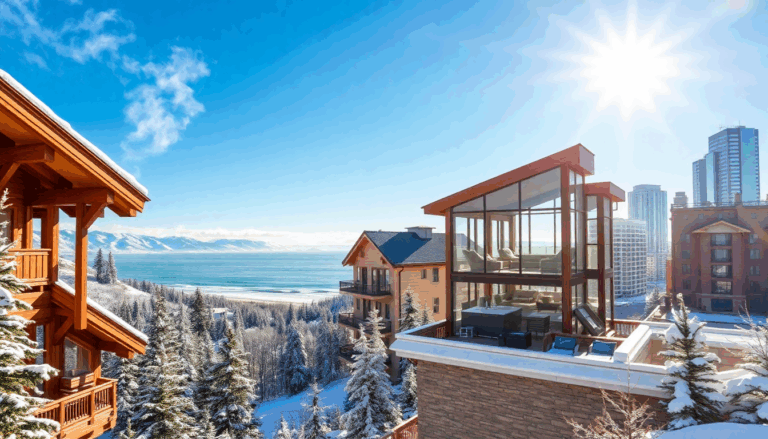Investing in second homes has emerged as a compelling opportunity, especially among young adults seeking to tap into the real estate market. Whether it’s a beachfront apartment, a cozy cabin in the mountains, or a chic city loft, the reasons for purchasing a second property can differ widely. This article aims
to guide potential investors through the complexities of buying and selling second homes, highlighting practical tips and important considerations.
Market trends in second home investments
In recent years, the second home market has shown signs of recovery, largely fueled by increased interest from foreign investors. Tourist hotspots and cultural cities continue to draw attention from those seeking a retreat from the hustle and bustle of daily life. Yet,
it’s not just tourism that drives this market; many view second homes as a chance to generate rental income. Understanding the dynamics of this market is crucial to avoid unexpected pitfalls.
Reasons for purchasing a second home
There are numerous motivations behind acquiring a second property. Some individuals are simply looking for a vacation spot, while others see an opportunity to rent out the property, thereby creating passive income. Additionally,
some may view the purchase as a long-term investment, hoping to benefit from an appreciation in property value over time. It’s essential to clarify your goals before diving into the market, as this will inform your decisions.
Exploring various types of second homes
The options for second homes are virtually limitless. From seaside villas perfect for summer getaways to urban apartments ideal for those seeking a city escape, and rustic cottages in the countryside for a peaceful retreat—each type offers distinct characteristics and opportunities. For example, a beachfront property might yield good returns during the summer season, whereas a centrally located apartment could attract year-round tenants.
Understanding the risks of second home investments
Despite the many opportunities, investing in second homes is not without its risks. Maintenance costs, taxes, and rental management can significantly impact the income generated. Moreover, it is vital to understand local rental regulations, which can vary greatly from one region to another. Being well-informed is crucial to avoid unpleasant surprises down the line.
Short-term rentals: a growing trend
In recent years, short-term rentals have gained immense popularity among second home owners. Platforms like Airbnb have simplified the process of managing short-term rentals, attracting tourists and travelers alike. However, it’s essential to remember that this strategy requires careful management and adequate preparation of the property. From cleaning to providing additional amenities, every detail can differentiate between a positive and negative experience for guests.
Tips for buying a second home
If you are considering purchasing a second home, here are a few tips to keep in mind. First and foremost, establish a realistic budget and don’t forget to factor in the additional costs associated with the purchase. Conduct thorough research on the area you’re interested in, evaluating not only the real estate market but also the quality of life and available amenities. Lastly, consider consulting industry professionals, such as real estate agents and attorneys, to ensure you navigate all necessary legal and contractual procedures effectively.
Investing in second homes can be a rewarding decision, provided you are well-informed and prepared. With the right approach, this type of investment can transform into a source of income and personal satisfaction. Staying updated on market trends and opportunities will help you maintain focus on your ultimate goals while enjoying the journey of property ownership.

